Shoot for the Stars review: a stellar auction-based quiz game?
Shoot for the Stars is fun for the whole family
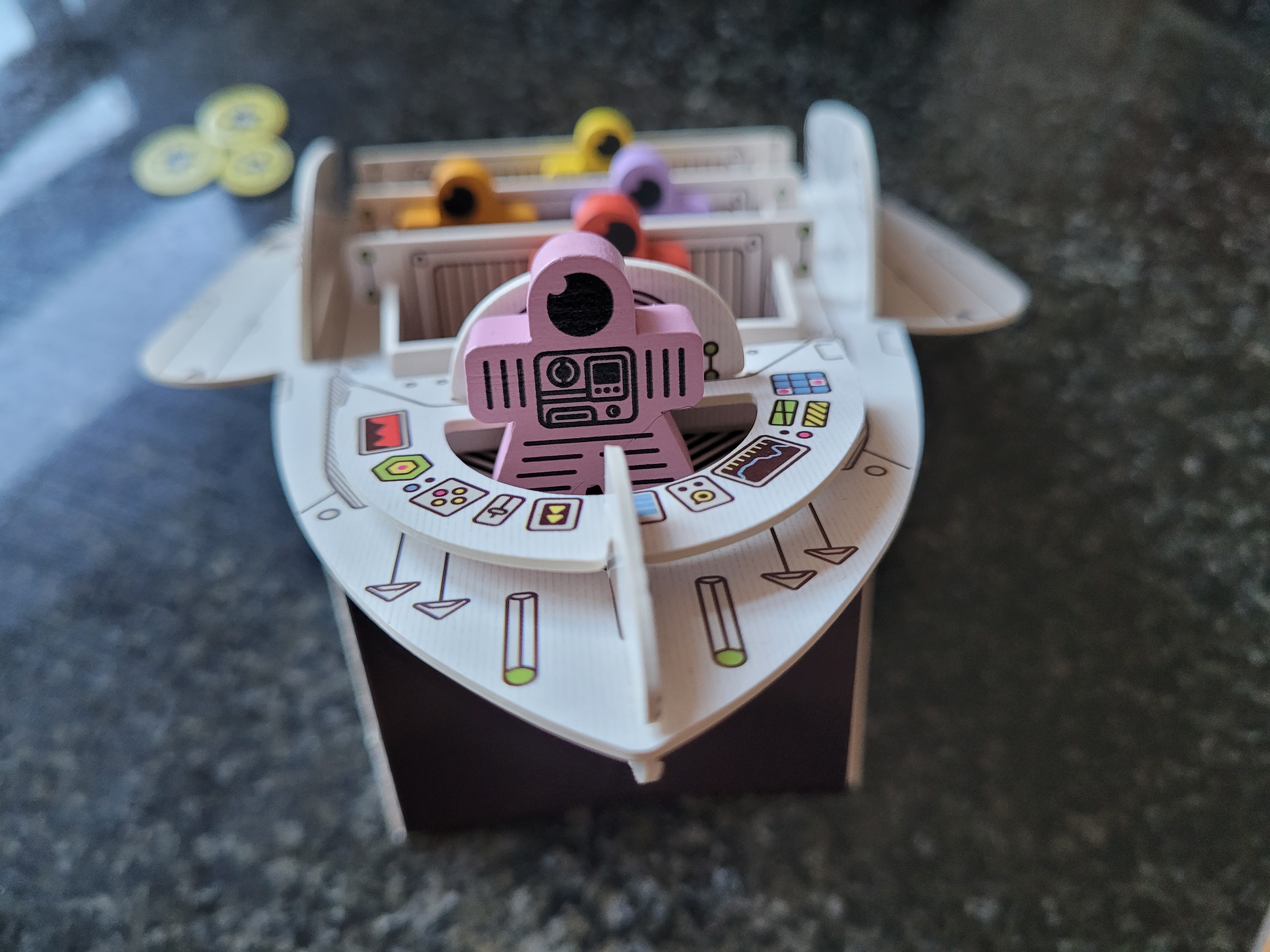

Fast playing, simple and with a cool cardboard spaceship, Shoot for the Stars is an auction-based quiz game that is fun for the whole family.
-
+
A fun take on the family quiz with auctions to raise tension
-
+
Cool rocket ship components
-
+
You may learn some surprisingly interesting trivia
-
-
Can feel repetitive over time due to simple premise
Why you can trust T3

Family weight quiz games are not a new idea, and they’re not new to publisher Big Potato Games either. The design trick is to find a novel twist to keep them engaging in a crowded marketplace. Big Potato has a track record of importing ideas from hobby titles into mass market fare and Shoot for the Stars is the latest example. They’ve taken a trivia quiz and turned it into an auction game.
In T3's Shoot for the Stars review, we will determine if it is one of the best cheap board games to buy.
Shoot for the Stars review: Price and Who It’s For
As a game aimed squarely at the family and casual market, Shoot for the Stars has a family and casual price of around £15/$20. And unlike some games in this segment, you can see where your money has gone. In addition to the obligatory deck of question cards, there’s a whizzy 3D cardboard spaceship to assemble and a lot of wooden astronaut meeples to crew it. All superfluous to gameplay but it looks really fun on the table.
Part of the reason for the unnecessary visual pizazz is no doubt to woo spontaneous buyers across the board. Although it’s very marginally more complex than the average trivia game, this is a title anyone can enjoy. The square focus is on play with families and friends, but the inclusion of auction-style mechanics broadens the appeal even further. Hardcore strategy fans who disapprove of light games are the only segment who should walk away.
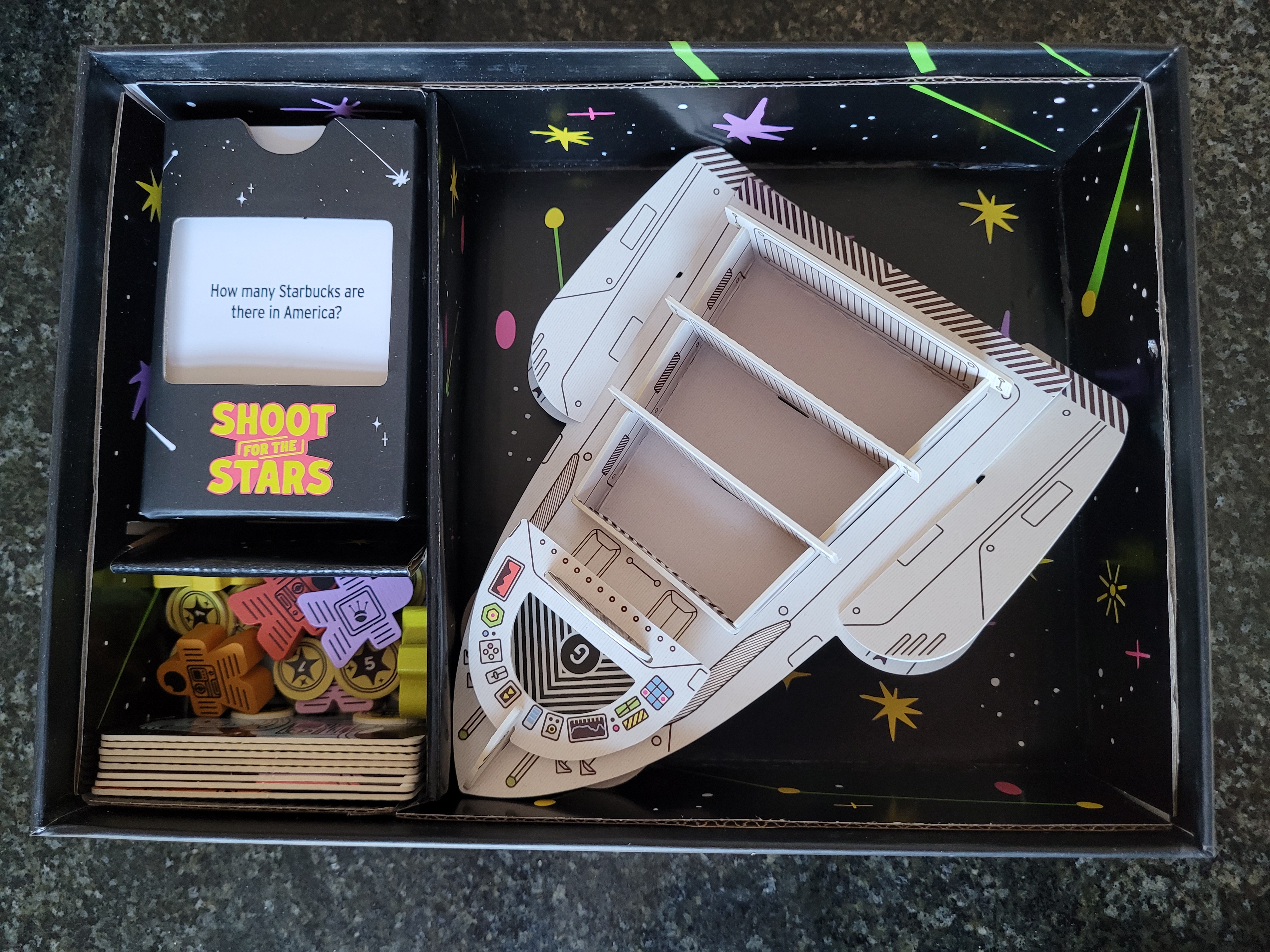
Shoot for the Stars review: How It Plays
Most of the questions in Shoot for the Stars have a numeric answer. How fast is the world’s fastest rollercoaster, for example, or how many times bigger is Australia than the UK? You’ll note they also tend toward the kind of awkward trivia that isn’t going to be on the tip of anyone’s tongue. You’re in guesstimate territory here, and the wilder guesses the more fun you’re going to have.
Players then take it in turns to guess an answer in the form of an auction. After the first guess, you can only increase the value guessed. The aim is to get as close to the actual answer as possible, not to go above it. So if you think it’s too low, you can up it with a guess of your own and place your playing piece in the cockpit of the cardboard ship. If you think it’s already too high, you can take your meeple off the ship. If you reckon the answer is about right and don’t want to risk adding to it, you simply leave your piece on the ship behind the cockpit.
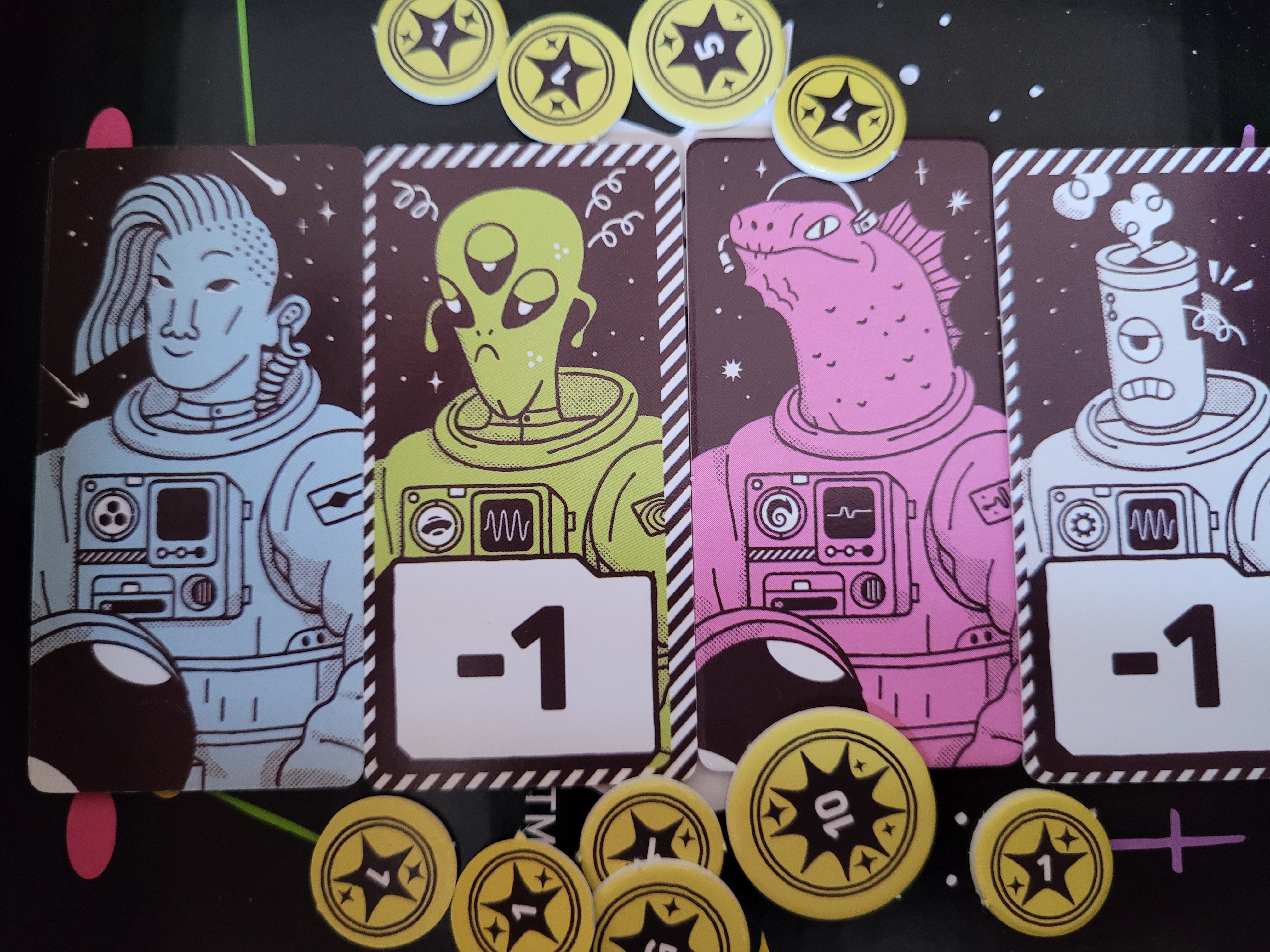
Back in the 1990s, auction games were all the rage in the hobby market and it’s not hard to see why. Anyone who’s caught a few minutes of the various bidding-based TV shows on daytime TV will get the appeal. It’s all about the catch between multiple rocks and several hard places. Is someone going to outbid you? If they do, can you afford to take them on? Are you bidding so high that it’s no longer good value? It’s excitement in a package that anyone can understand, but it’s still based on skill.
Get all the latest news, reviews, deals and buying guides on gorgeous tech, home and active products from the T3 experts
Similar factors apply to Shoot for the Stars, with the best questions and the best bids catching the next player in that awkward uncertainty between boldly reaching for the crown and fear of falling. Some, like guessing Tom Cruise’s shoe size, don’t work so well because of the limited range of answers. But most give you a lot of leeway to play with. On rare occasions, you might have someone who knows, or thinks they know, the correct answer. If this happens they can declare a “moonshot” which doubles the points if they’re right but also doubles the penalties if they’re not.
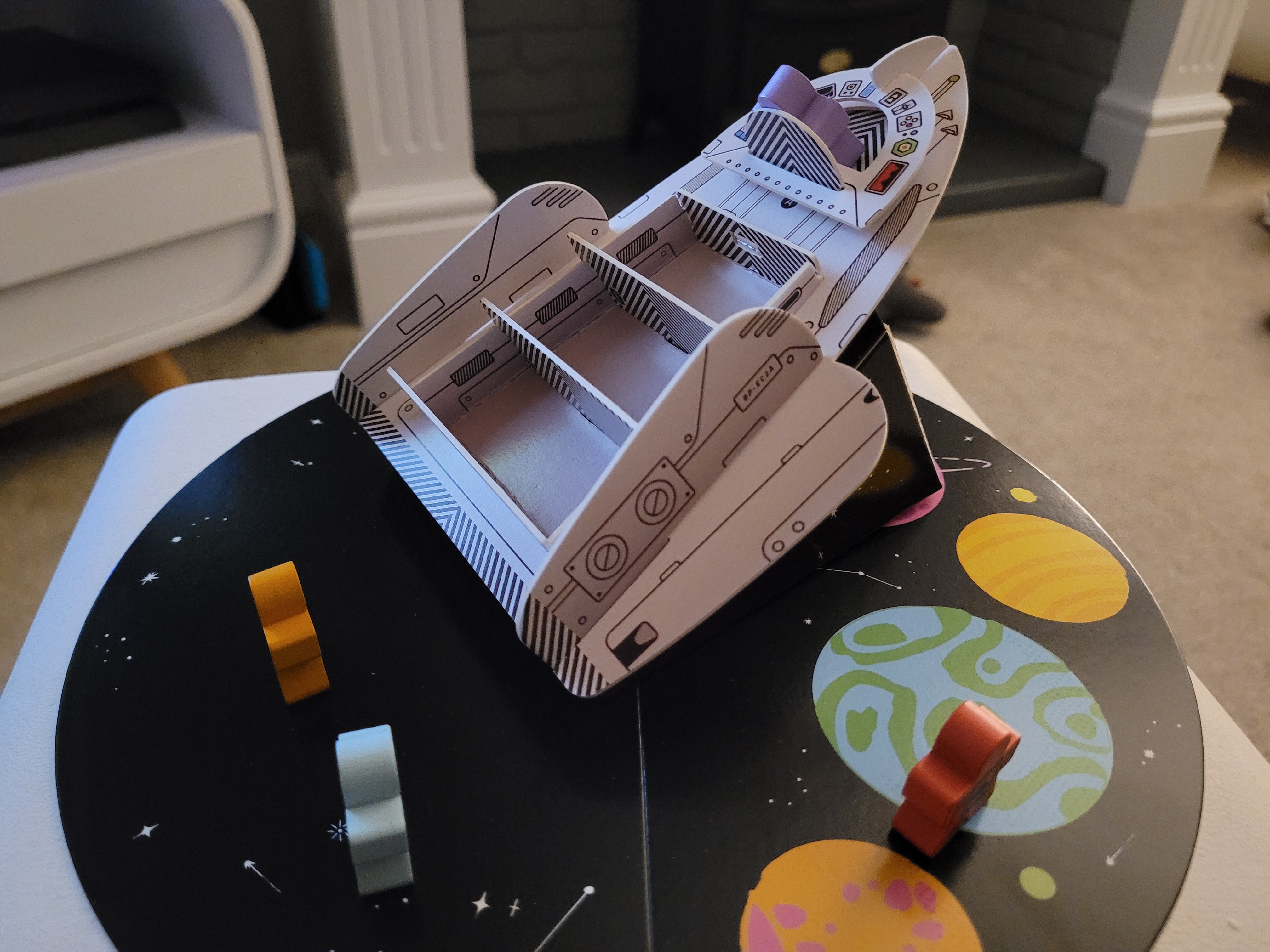
Once you’ve gone around the whole group without anyone daring to increase the number it’s time to find out the answer. This is the big reveal, and you can expect the kinds of scenes reserved for a grand prize raffle with winners celebrating wildly and losers lamenting their poor decisions. If the leading bid is too high, that player loses points and those who got off the ship gain them. If it’s under the real answer, the biggest bidder wins big points and those still on the ship also score. Doling out points is the only complexity in the game and you’ll soon get the hang of it.
While a lot of the questions are squarely in trivia territory there are quite a few that offer thought-provoking answers like “how many years does it take a plastic water bottle to decompose”? We were all surprised by the reveal and there are other potential learning opportunities in the deck that make for great family discussion moments. Some answers are current, which you have to scan with a QR code, or date-based. There is even a minority where the answer is determined by the group playing and it’s super fun trying to guess other players’ responses.
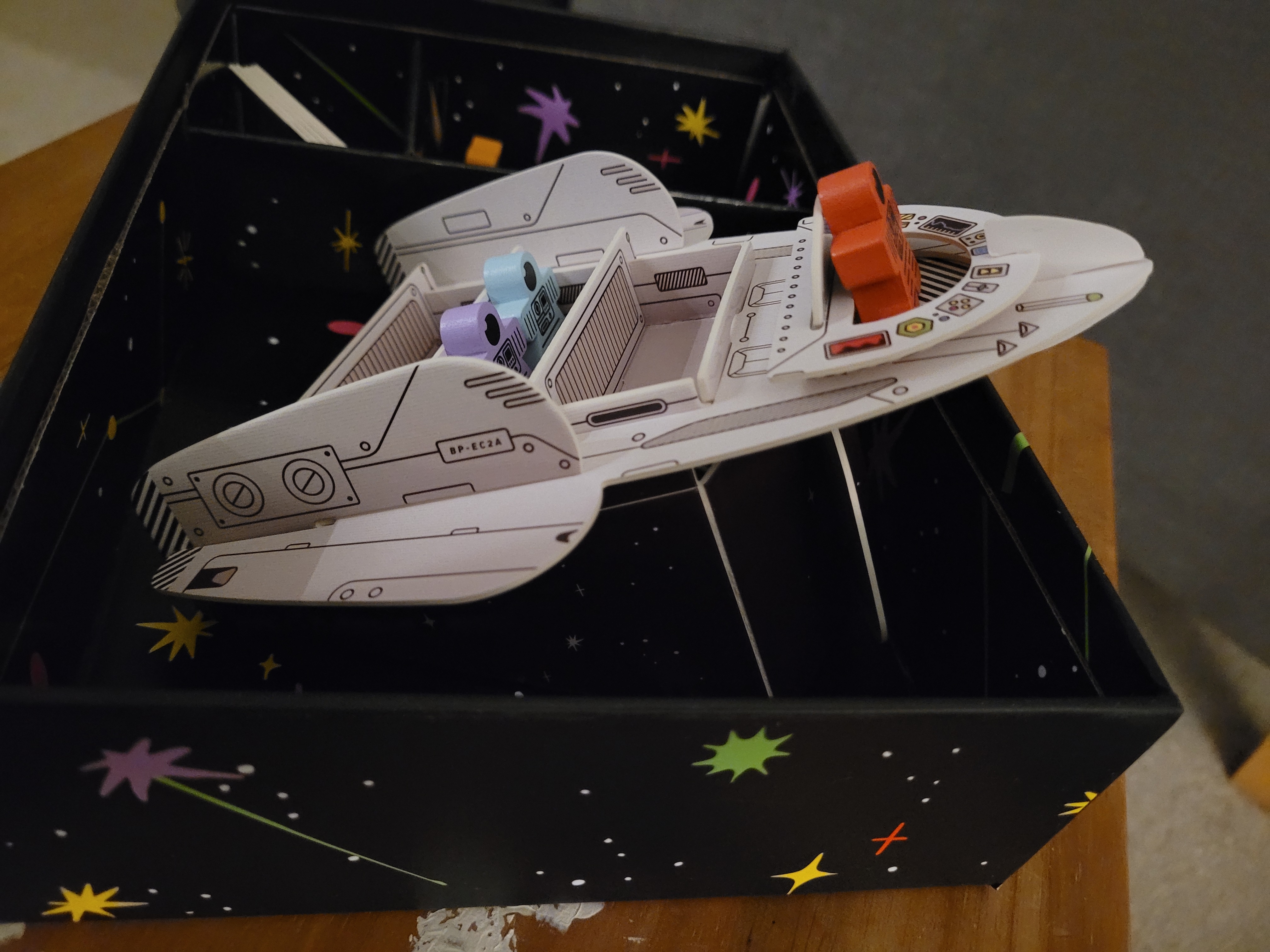
Shoot for the Stars review: Verdict
Shoot for the Stars is a family-weight trivia game with most of the unfortunate baggage that entails. But while it belongs squarely in a rather saggy niche, the excitement and fun of bidding for answers puts it right at the top of the pile when it comes to contenders for quiz night. If you’ve ever had any hankering for a trivia game that stands out from the crowd this is absolutely worth a try: you’re likely to have a better time than you expected.
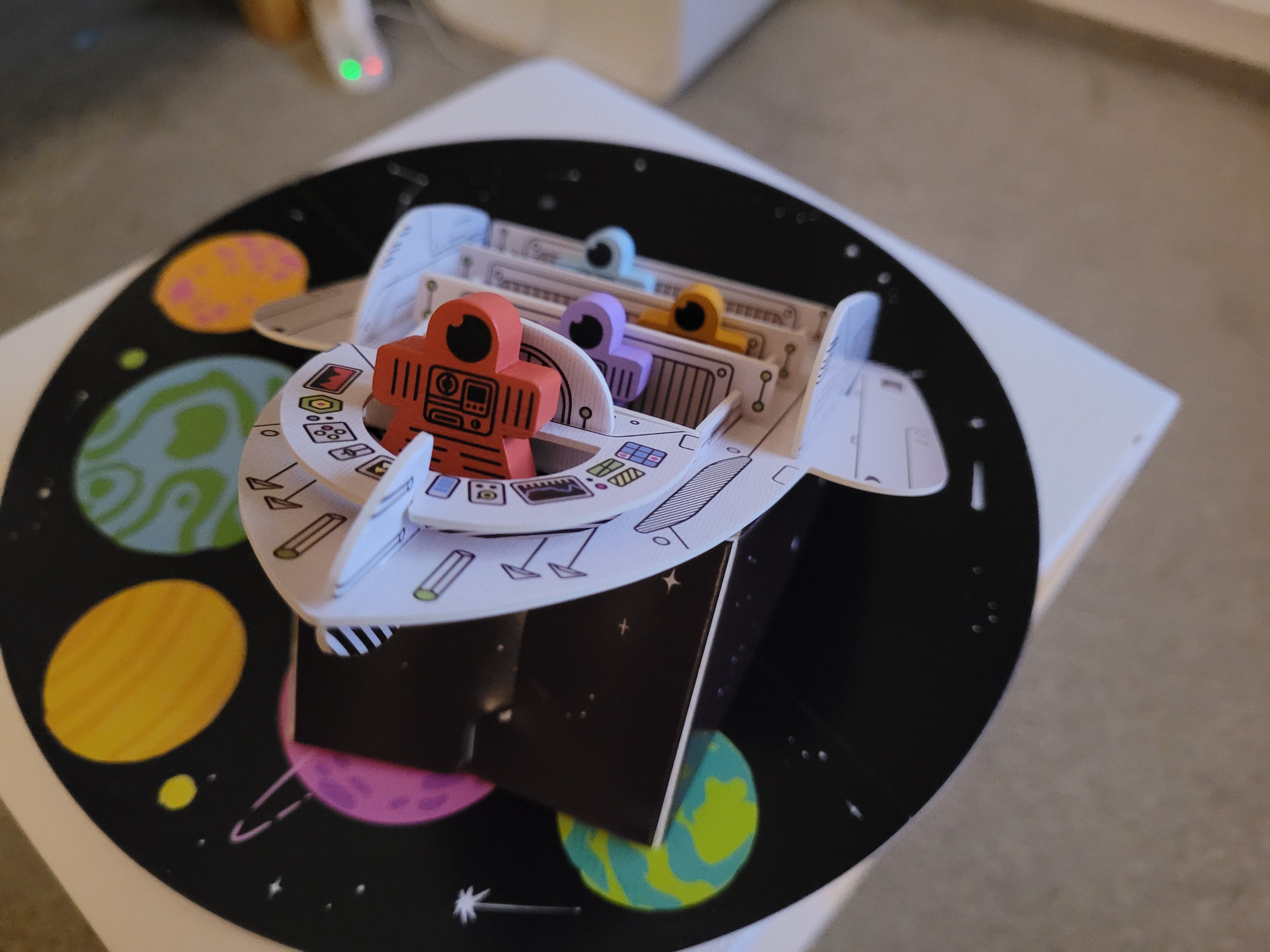
Also Consider
The only real challenger when it comes to top trivia titles is Wits & Wagers. It also challenges players with number-based questions and you have to get closest without going over. But players write down their answers rather than bidding them, and the clever twist is that you can win extra points by betting on who else in the group you think knows the answer. This makes it just as exciting and a bit more strategic, since you can bluff or play the odds, although you don’t get a cardboard spaceship.
If you like the idea of auctions but don’t want a quiz game, there are plenty of lightweight bidding games to try out. High Society, for example, gives you fixed currency cards and doesn’t allow you to make change, making upping your bid particularly nerve-wracking. Or there’s For Sale, a double-layered game where you bid for buildings that you then play to try and win money cards.

Matt has been writing about and reviewing tabletop games professionally for over a decade and playing them since he could talk. He's also the author and co-author of three books on the subject. He writes about video games, too, and his other hobbies include hiking and cooking.